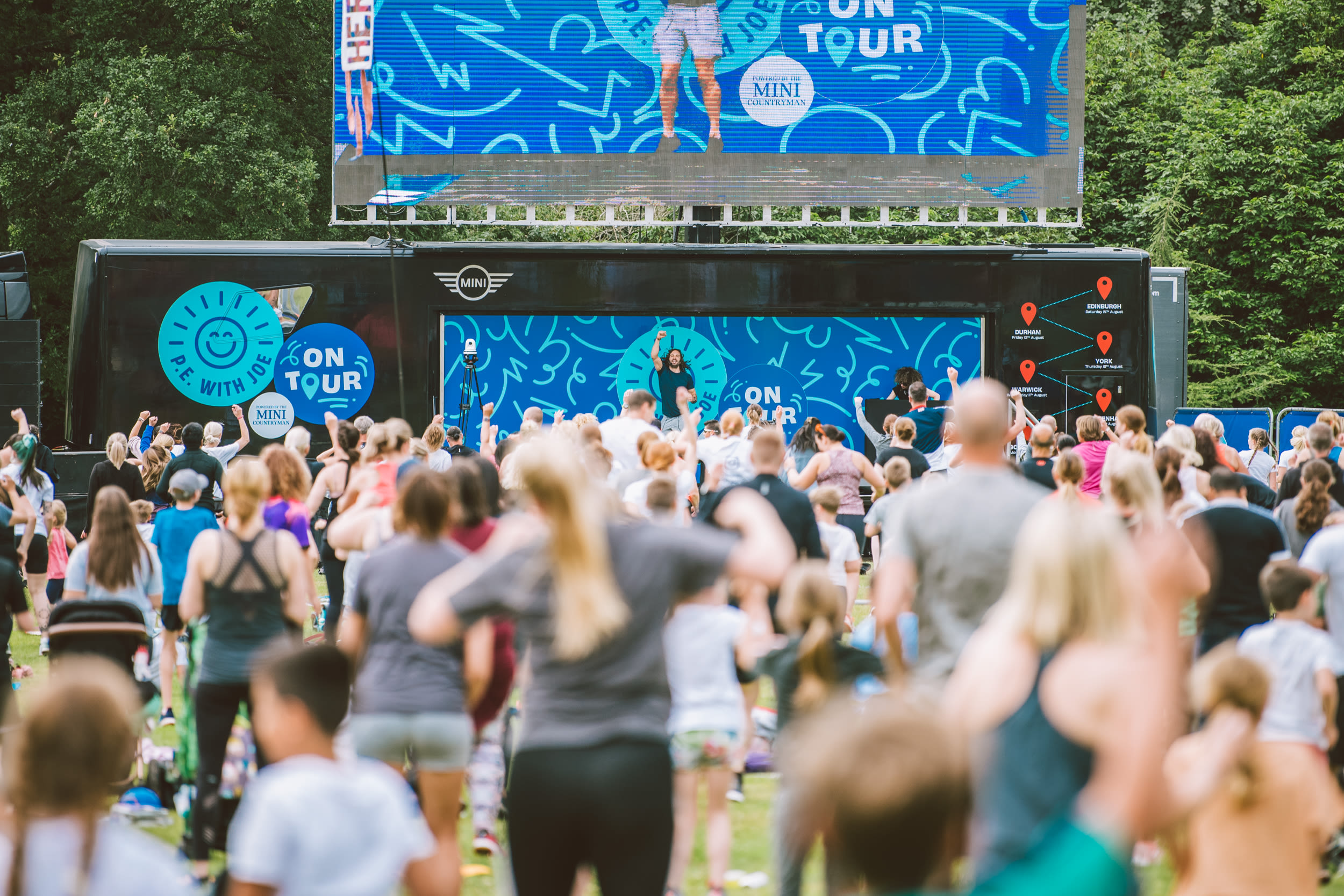“I dropped 2 dress sizes in 5 months – I turned my life around”
“I would tell my January self to stick with it as I was about to fall in love with exercise."
Get an annual subscription to The Body Coach app for just £69.99 (usually £89.99)

Many of us start our fitness journey with different goals. For some of us, it’s simply to move more. For others, it’s to improve mental health, or have more energy to chase after the kids.
No matter your goal or where you’re heading, one thing that’s pretty much guaranteed to make the journey easier is having people around you to support, cheer you on, and motivate you. Community is everything.
Even if you exercise alone at home, having a support network – like a partner cheering you on, virtual workout buddies, or a group chat of sweaty selfies – can really give you that boost.
Sean Figgins, Assistant Professor at the University of Sussex, researches the impact of how sport and exercise with others can impact motivation. “There’s lots of evidence that shows when we’re part of a group, which can be two or more people, it leads to a range of positive outcomes in exercise, fitness, and health,” he says.
Here are three powerful benefits to having a supportive fitness community.
One of the hardest things about moving your body is sticking to it. You might have the motivation to get up at the crack of dawn to exercise one day, but want to stay in bed under a blanket the next. Having people around you can make it easier, and make you feel more accountable.
“If you have a strong connection [with others] and internalise that connection into your sense of self, you’re more likely to engage and adhere to exercise,” says Sean. “You’ll engage more effort and get more out of the exercise from a physical standpoint.”
One study of more than 5,000 UK adults found that those who had high levels of emotional and practical support from others were more likely to maintain recommended levels of exercise consistently. Knowing someone is there and doing it too – whether it’s in person or online – really can be enough to get you moving.
Fitness journeys aren’t easy – they can be emotional, too. If you’re navigating issues like low self-esteem, feeling overwhelmed, or lack of time, having people who truly get it can make a big difference.
“It can help [you] feel less isolated and more connected with others,” says Sean. “People may feel alone, but when they see or know others are doing things at the same time, they feel they’re not alone – there are people in the same boat.”
When it comes to exercising with others, the benefits aren’t just physical, says Sean. “A lot of people engage with exercise for the physical benefits, but in a community, tend to find they get psychological benefits, social connections, emotional support, and it’s even been shown to reduce loneliness,” says Sean.
Having people to lean on, ask questions, or swap advice with means you’ll likely learn more than if you were doing it all alone. Whether it’s one friend you rely on or a whole online fitness group, you can pick up tips, ideas, and insights from their wins and their mistakes.
Everyone brings their own experiences and knowledge, which creates a wider shared pool of info you can learn from. “Having a group also provides you with access to resources,” says Sean. “Not just physical resources, but those that help us stick to exercise and keep going – support, encouragement, and information, like ‘How do I do this?’”
He adds, “It can also give meaning and purpose to those supporting others – that act of helping becomes valuable in itself.”
So what should you look for in a fitness community? “Find people who are similar to you,” says Sean. “You’re more likely to feel part of a group when you have shared characteristics, which could be age, gender, or fitness level. The more similarity there is, the more likely we are to adhere to exercise and enjoy exercise.”
At the end of the day, if exercise isn’t enjoyable to you, it won’t last. Having a community turns exercise into a shared experience – and it’s much easier to enjoy something when you’re not doing it alone.
This article was written by The Body Coach content team.
__We are launching Community on The Body Coach app – a space to share wins, feel supported, and stay motivated together. Track your activity, add friends, connect with others, and celebrate milestones – plus, stay motivated with exclusive posts from Joe. Join today. __